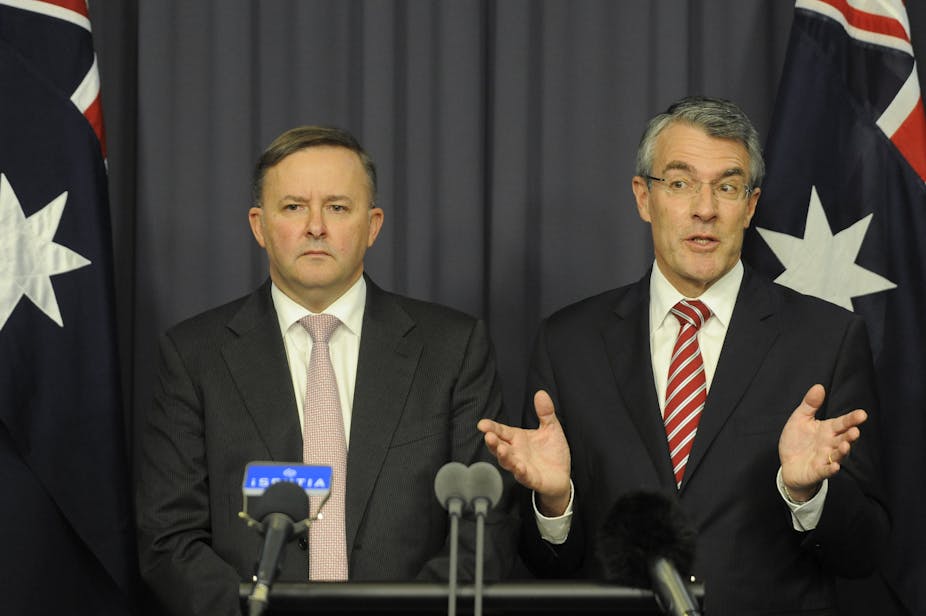I am not Nostradamus, but I am prepared to make a confident prediction. If the proposed constitutional amendment to recognise local government, in the form announced by press release last week, were to proceed, all the states would give it complete support.
Indeed, I would not be surprised to see state and territory premiers jumping with glee and breaking out the champagne. If successful, such a referendum would give a huge boost to the economy and be an extraordinary legacy of the Gillard government.
My second confident prediction is that the Gillard government will not put the referendum in the form that it announced – more’s the pity.
The proposal is to amend section 96 of the Constitution. This provision allows the Commonwealth to “grant financial assistance to any State on such terms and conditions as the Parliament thinks fit”.
The sting is in the tail – the “terms and conditions”. This means that the Commonwealth can intervene in any area of state responsibility, such as health or education, by placing conditions on its funding to the state.
As the states’ means of revenue-raising are few, they are dependent upon Commonwealth grants for about half the revenue they need to fulfil their responsibilities. Realistically, they cannot refuse Commonwealth grants and have to put up with onerous terms and conditions.
According to the High Court, the Commonwealth can impose any terms and conditions on its grants, even if they have nothing at all to do with how the money is spent. It can therefore give money for a sporting ground on the condition that the state changes its industrial relations system.
The proposed referendum is to permit the Commonwealth to make grants directly to local government too, rather than through the states. The joint announcement of the federal attorney-general Mark Dreyfus and Minister for Local Government Anthony Albanese set out the revised version of section 96 in the following terms:
During a period of ten years after the establishment of the Commonwealth and thereafter until the Parliament otherwise provides, the Parliament may grant financial assistance to any State, or to any local government body formed by a law of a State.
Yes, there was a full stop at the end and the phrase “on such terms and conditions as the Parliament thinks fit” had magically disappeared.
Was it a bit of spin by a media adviser who thought it might be clever not to mention that the funding to local government would be tied up by burdensome and intrusive conditions? Or was it simply ignorance?
One might imagine that with something as important as a proposed change to the Constitution, someone who knew what they were doing might just have glanced at it. Apparently not. So the press release makes each minister look like a goose and has misled the press which republished it everywhere, understandably presuming it was accurate.
What was really breathtaking, however, was the opinion piece by Anthony Albanese printed in The Australian on the following day. Yes, he too set out the revised section 96, carefully including the completely redundant preliminary words, but leaving off the critical words that the grants shall be on “such terms and conditions as the Parliament thinks fit”.
A mistake in a press release is one thing, but when the minister repeats the omission in his own opinion piece, then one really has to wonder exactly how much attention has been paid to this proposal and whether the ministers involved really know what they are doing.
There is one other remote possibility. Perhaps they meant it. Perhaps the lasting gift of the Gillard government will be terminating the Commonwealth’s ability to place terms and conditions on its grants. This would mean that the Commonwealth could get on with governing in its areas of responsibility and the states could do so in theirs.
Just imagine - no duplication, no administrative burdens, no Commonwealth bureaucrats who have never run a hospital or school placing conditions on how the states run hospitals or schools. A single level of government would be responsible and accountable for the subject areas within its jurisdiction. Economic efficiency in the public sector would rise and the budget would most likely come bouncing back into surplus.
It would be a truly noble act of a dying government. But not even Nostradamus would have been prepared to make such an unrealistic prediction.

